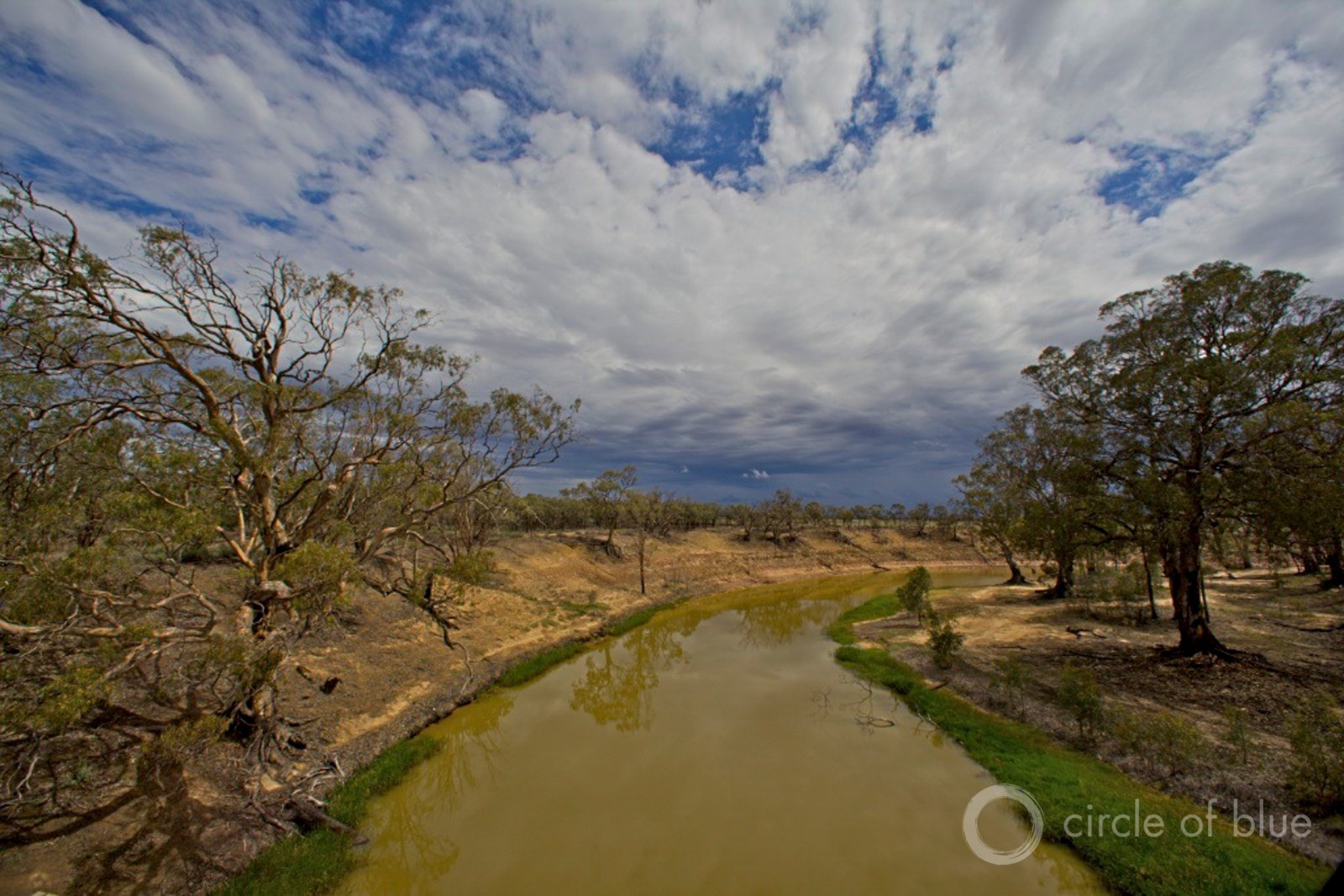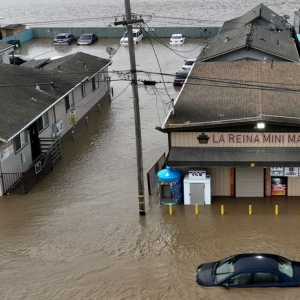The Stream, March 29, 2023: Mass Fish Die-Off Reignites Concerns on Overuse of Australian River

Australia’s Murray-Darling river basin. Photo © J. Carl Ganter / Circle of Blue
YOUR GLOBAL RUNDOWN
- Millions of fish have died in southeastern Australia, reigniting a local battle over river overuse.
- A new report reveals that the human toll of Somalia’s ongoing drought is much higher than previously thought.
- A chemical spill in a Delaware River tributary leads to a drinking water advisory in Philadelphia.
- In Tunisia, scarce water reserves prompt nightly shutoffs in and around the capital city.
Rivers, drinking water, and farmland in southern Senegal have become too salty, a consequence of coastal erosion and seawater intrusion.
“Water advances, and poverty along with it.” — Bruno Bouyoyo Diatta, the traditional chief of Kabrousse.
Coastal communities in southern Senegal are reckoning with environmental change. Rising seas have caused inland flooding and saltwater intrusion, both symptoms of global warming in what is “one of the world’s most vulnerable regions to climate change,” Al Jazeera reports.
The encroaching saltwater has decimated agriculture, infrastructure, and ecology in and near Diogué Island. Farmers have been forced to abandon their paddy fields, which are now too salty to produce crops, and replace them with mangroves. The tainting of drinking water reserves, both below ground and in cisterns, has forced a primary school to relocate. Fishing throughout the Casamance River basin has diminished, due to many freshwater species struggling to adapt to increasing salinity.
As a result of these impacted ecosystems and economies, the World Bank has estimated that Senegal loses more than $500 million per year. But villages continue to seek out solutions — building barriers to prevent seawater from intruding upon their freshwater; replacing rice crops with oyster farming; and placing sand traps to preserve beachy coastline.
Still, the heart of the problem is largely out of locals’ hands. According to the UNDP, Senegal produces less than one tenth of one percent of global greenhouse gas emissions, which are a driving factor of global ice melt, which causes seas to rise around the world.
— Christian Thorsberg, Interim Stream Editor
Recent WaterNews from Circle of Blue
- UN Conference on Water Aims to Rally Support for Ambitious Goals — Global water challenges headline gathering in New York City.
- Majority Say Water Supply and Pollution ‘Very Serious’ Problems — Global public opinion poll measures views on freshwater challenges.
The Lead
Millions of fish corpses are floating atop the Darling River in New South Wales, Australia, following the second mass die-off in five years, the New York Times reports. Residents are furious, claiming that the river, a local drinking water source, will be dead within the next decade unless authorities take action.
The fish died of hypoxia, a lack of oxygen in the water. Locals say that this condition was the culmination of a series of unresolved concerns, stemming from river overuse and low water levels. The construction of weirs prevents fish from swimming to oxygenated waters, experts say, and a rise in upstream agriculture has weakened downstream flows. The increasing occurrence of extreme weather events — both droughts and floods — has added debris to the river, further depriving the water of oxygen.
Many are calling for the government to step in and set stricter limits on river use, though many parties — farmers, residents, advocates, and Indigenous groups — want different outcomes.
Local authorities have said that a full fish clean-up, due to the scope of this disaster, will be impossible.
This Week’s Top Water Stories, Told In Numbers
43,000
Number of children who died last year in Somalia as a result of the country’s ongoing drought, the Guardian reports. The drought is a result of six consecutive failed rainy seasons, an unusual stretch of little rainfall that experts are attributing to the climate crisis. Forecasts for 2023 show little reprieve as the extreme weather, compounded by intense food insecurity, is likely to persist with devastating consequences: “Up to 34,000 further deaths have been forecast for the first six months of this year,” according to the Guardian.
8,000
Gallons of hazardous material spilled into Otter Creek, a tributary to the Delaware River, last weekend, the Philadelphia Inquirer reports. The spill prompted the city of Philadelphia, which receives some its drinking water from the nearby Baxter Water Treatment plant, to send a series of advisories to its residents, sparking bottled water buying-sprees throughout the city. The Philadelphia Water Department says that tap water will be safe to drink until at least midnight on Wednesday, and that the matter is expected to be resolved by early next week.
On the Radar
Authorities in Tunisia have begun cutting off residents’ access to drinking water at night in an effort to conserve supplies as drought threatens low reserves, Reuters reports. The shutoffs are mainly affecting heavily populated areas: parts of the capital Tunis, and Hammamet, Sousse, Monastir and Sfax. Water capacity at Sidi Salem Dam, which provides drinking water for multiple regions, has fallen to 16 percent.
More Water News
Alabama Sewage: An estimated 80 percent of residents in Alabama’s Black Belt are not attached to a municipal sewage line, prompting environmental advocates to file a civil rights complaint against the state, Capital B reports.
Tulare Lake: For the first time since it disappeared in 1997, flooding and atmospheric rivers have caused the central California lake to return — with destructive consequences, the LA Times reports.
Christian Thorsberg is an environmental writer from Chicago. He is passionate about climate and cultural phenomena that often appear slow or invisible, and he examines these themes in his journalism, poetry, and fiction.







Leave a Reply
Want to join the discussion?Feel free to contribute!